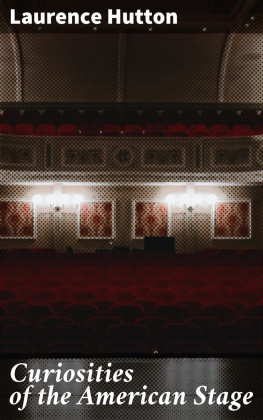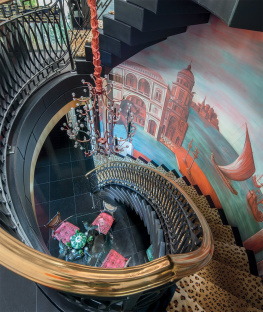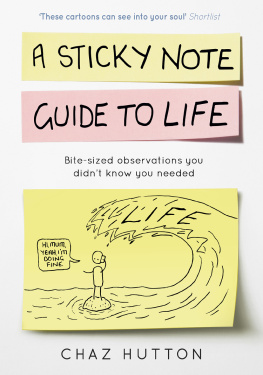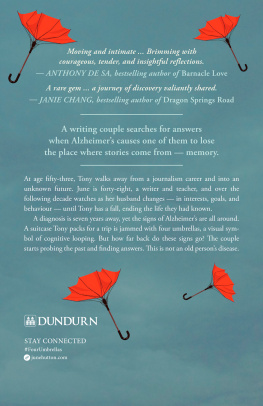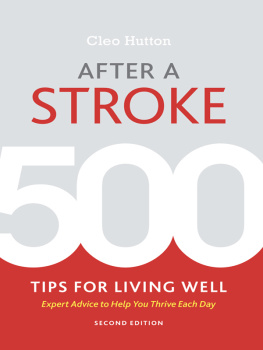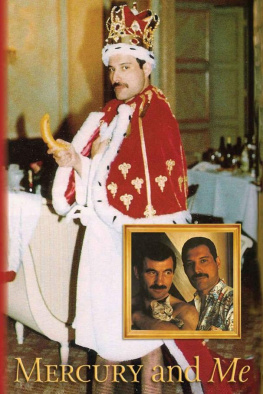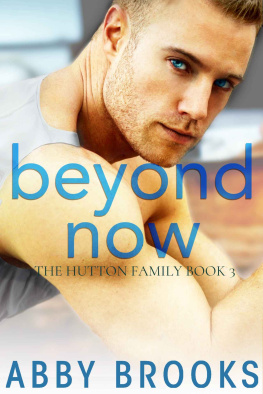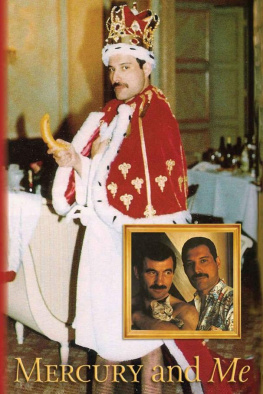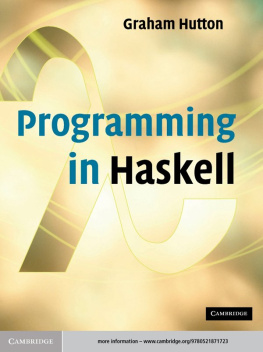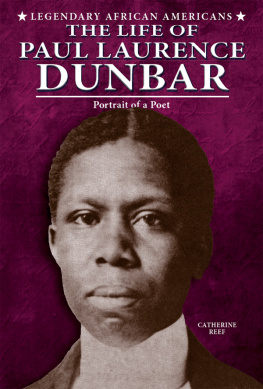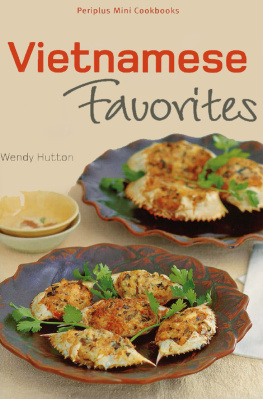THE ARGUMENT.
Table of Contents
This book, as its name implies, is a series of chapters from the annals of the American Theatre; and it considers Plays and Players more particularly in their less familiar aspects. It does not pretend to be critical; and the greatest care has been taken to verify all the facts it contains (many of them here presented for the first time), in order that it may appeal to the small but select band of specialists known as Dramatic Collectors, as well as to those influential members of the community who are glad to call themselves Old Play-goers.
The chapters upon The American Stage Negro, upon The American Burlesque, and upon a A Century of American Hamlets, appeared originally in Harpers Magazine ; the others have been printed, in part, in other periodicals, but as now published they have all been rewritten, elaborated, and extended.
The portraits with which the volume is enriched are in many instances very rare, and some of them, never engraved before, have been prepared especially for this work. They are from the collections of Mr. J. H. V. Arnold, Dr. B. E. Martin, Mr. Thomas J. McKee, Mr. C. C. Moreau, Mr. Evart Jansen Wendell, and The Players, to all of whom the author here expresses his sincere thanks.
A double Indexpersonal as well as localmakes the book easily available for reference; and it will lend itself readily to extra illustration. It is intended to instruct as well as to entertain.
Laurence Hutton.
The Players, 1890.
DRAMATIS PERSON.
| PAGE |
| Junius Brutus Booth |
| G. W. P. Custis |
| Edwin Forrest |
| John McCullough |
| Major Andr |
| J. H. Hackett |
| Frank Mayo as Davy Crockett |
| William J. Florence as Bardwell Slote |
| John T. Raymond |
| Neil Burgess as the Widow Bedott |
| F. S. Chanfrau as Mose |
| Epes Sargent |
| Anna Cora Mowatt Ritchie |
| Edgar Fawcett |
| Brander Matthews |
| Bronson Howard |
| Charles Dibdin as Mungo |
| Ira Aldridge as Othello |
| Old Play-bill |
| Andrew Jackson Allen |
| Barney Williams in Dandy Jim |
| Ralph Keeler |
| P. T. Barnum |
| John B. Gough |
| Thomas D. Rice as Jim Crow |
| Thomas D. Rice |
| James Roberts |
| George Washington Dixon |
| Mr. Dixon as Zip Coon |
| Daniel Emmett |
| Charles White |
| Edwin P. Christy |
| George Christy |
| George Swayne Buckley |
| Eph Horn |
| Jerry Bryant |
| Nelse Seymour |
| Dan Bryant |
| Stephen C. Foster |
| Mrs. Hallam (Mrs. Douglas) |
| Mark Smith as Mrs. Normer |
| William Mitchell as Richard Number Three |
| John Brougham and Georgiana Hodson in Pocahontas |
| Harry Beckett as the Widow Twankey, in Aladdin |
| James Lewis as Syntax, in Cinderella at School |
| George L. Fox as Hamlet |
| Lydia Thompson as Sindbad |
| William H. Crane as Le Blanc, in Evangeline |
| Stuart Robson as Captain Crosstree |
| Harry Hunter as the Lone Fisherman |
| Francis Wilson in the Oolah |
| Mr. Jefferson and Mrs. Wood in Ivanhoe |
| James T. Powers as Briolet, in The Marquis |
| Charles Burke as Kazrac, in Aladdin |
| N. C. Goodwin in Little Jack Sheppard |
| De Wolf Hopper as Juliet, and Marshall P. Wilder as Romeo |
| Henry E. Dixey as the Country Girl in Adonis |
| Munrico Dengremont |
| Josef Hofman |
| Otto Hegner |
| Elsie Leslie |
| Charles Stratton (Tom Thumb) |
| Lavinia Warren |
| John Howard Payne |
| Blind Tom |
| Master Burke as Hamlet |
| May Haines and Isa Bowman as the two Princes in King Richard III. |
| Edmund Kean |
| William Augustus Conway |
| James William Wallack |
| William C. Macready |
| Charles Kemble |
| Charles Kean |
| Edwin Forrest |
| Edward L. Davenport |
| James Stark |
| Edwin Booth |
| Lawrence Barrett |
| James E. Murdoch |
| Charles Fechter |
| Henry E. Johnstone |
| John Vandenhoff |
| George Jones |
| Augustus A. Addams |
| William Pelby |
ACT I.
THE NATIVE AMERICAN DRAMA.
Table of Contents
SCENE I.
THE INDIAN DRAMA.
Do you put tricks upon s with savages and men of Inde?
The Tempest, Act ii. Sc. 2.
The American play is yet to be written. Such is the unanimous verdict of the guild of dramatic critics of America, the gentlemen whom Mr. Phbus, in Lothair, would describe as having failed to write the American play themselves. Unanimity of any kind among critics is remarkable, but in this instance the critics are probably right. In all of its forms, except the dramatic form, we have a literature which is American, distinctive, and a credit to us. The histories of Motley and of Parkman are standard works throughout the literary world. Washington Irving and Hawthorne are as well known to all English readers, and as dearly loved, as are Thackeray and Charles Lamb. Poems like Longfellows Hiawatha, Whittiers Snow-Bound, Lowells The Courtin, and Bret Hartes Cicely belong as decidedly to America as do Grays Elegy to England, The Cotters Saturday Night to Scotland, or the songs of the Minnesingers to the German Fatherland, and they are perhaps to be as enduring as any of these. Mr. Emerson, Mr. Lowell, and Professor John Fiske are essayists and philosophers who reason as well and as clearly, and with as much originality, as do any of the sages of other lands. In our negro melodies we have a national music that has charms to soothe the savage and the civilized breast in both hemispheres. American humor and American humorists are so peculiarly American that they are sui generis, and belong to a distinct school of their own; while in fiction Coopers Indian novels, Holmess Elsie Venner, Mrs. Stowes Oldtown Folk, Howellss Silas Lapham, and Cables Old Creole Days are purely characteristic of the land in which they were written, and of the people and manners and customs of which they treat, and are as charming in their way as are any of the romances of the Old World. Freely acknowledging all this, the dramatic critics are still unable to explain the absence of anything like a standard American drama and the non-existence of a single immortal American play.
The Americans are a theatre-going people. More journals devoted to dramatic affairs are published in New York than in any European capital. Our native actors in many instances are unexcelled on any stage of the world; we have sent to England, to meet with unqualified favor from English audiences, J. H. Hackett, Miss Charlotte Cushman, Joseph Jefferson, Edwin Booth, John S. Clarke, Lawrence Barrett, Edwin Forrest, Miss Mary Anderson, Miss Kate Bateman, Augustin Dalys entire company of comedians, Mr. and Mrs. Florence, Richard Mansfield, and many more; while, with the exception of certain of Bronson Howards comedies, localized and renamed, how many original American plays are known favorably, or at all, to our British cousins?

